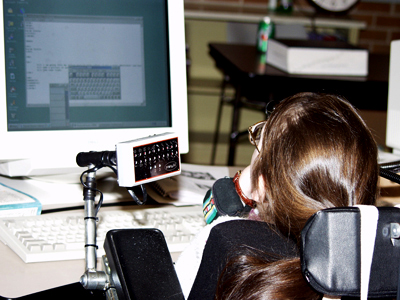AccessSTEM Website and Searchable Knowledge Base

The AccessSTEM website is a space where K-12 teachers, postsecondary educators, and employers learn to make classroom and employment opportunities in STEM accessible to individuals with disabilities. It is comprised of six primary areas:
- Accommodation Strategies
How educators and employers can ensure access to academic and employment opportunities in STEM for individuals with disabilities - Knowledge Base
A searchable database of frequently asked questions, case studies, and promising practices related to how educators and employers can fully include students with disabilities in STEM activities - Presentations
Streaming video presentations with accompanying publications that share strategies for working with students with disabilities in mathematics and science classes - Resources
Resources to help instructors more fully include students with disabilities in course activities - Rights and Responsibilities
The rights and responsibilities of educators, student support staff, and students with disabilities - Universal Design
Strategies for creating academic environments that maximize the learning of students with a wide range of abilities and disabilities
DO-IT maintains a searchable database of frequently asked questions, case studies, and promising practices related to how educators and employers can fully include students with disabilities in computing activities. The Knowledge Base can be accessed by following the "Search the AccessSTEM Knowledge Base" link on the AccessSTEM website.
Individuals and organizations are encouraged to propose questions and answers, case studies, and promising practices for the Knowledge Base. In particular, the promising practices articles serve to spread the word about practices that show evidence of improving the participation of people with disabilities in STEM. Contributions and suggestions can be sent to doit@uw.edu.
Examples of Knowledge Base questions include the following:
- What lab safety issues need to be considered for a student who is deaf, has a visual impairment, or has a mobility impairment?
- Where can I find vendors who specialize in assistive technology and materials for science laboratories?
- Do fume hoods exist that are accessible to people with mobility impairments?
- How can I help a student who is blind or has low vision make measurements in a science lab?
- How can I help a student record and analyze data in a science lab?
Examples of Knowledge Base case studies and promising practices include the following: